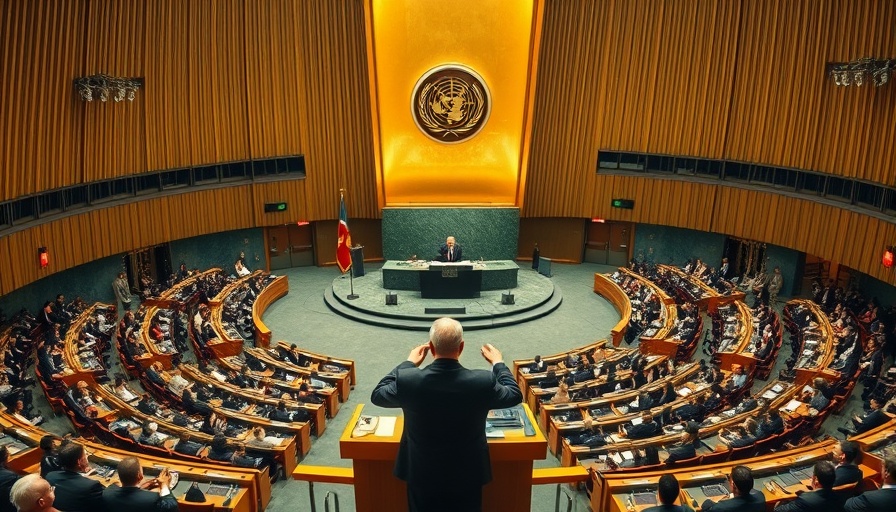
Trump's Strategic Summit Amid Ongoing Gaza Conflict
In a significant diplomatic move, former U.S. President Donald Trump is set to hold a summit with key Arab and Muslim leaders on the sidelines of the U.N. General Assembly in New York. Scheduled for early next week, this gathering is particularly crucial as it seeks solutions to the ongoing conflict in Gaza, a matter of pressing concern for the region. Notably, this meeting takes place shortly before Trump is expected to host Israeli Prime Minister Benjamin Netanyahu at the White House, reflecting a broader strategy to balance relationships across the Middle East amidst rising tensions.
Why This Meeting Matters for the Region
The stakes of this summit are high, especially in light of the shifting geopolitical landscape surrounding the Palestinian statehood. Countries like Saudi Arabia, Qatar, Egypt, and Jordan will be directly involved in the discussions, all of which have expressed concerns about the repercussions of continued Israeli aggression, including potential annexation of parts of the West Bank. Importantly, the UAE has voiced that any such annexation could jeopardize the Abraham Accords, which Trump famously championed during his presidency.
The Potential Impact on U.S.-Middle East Relations
As the invited leaders gather, they are expected to urge Trump to apply pressure on Netanyahu to de-escalate the situation in Gaza and to refrain from further territorial claims. The outcome of this summit could redefine U.S.-Arab relations, especially if it leads to a collaborative approach to stabilizing Gaza post-conflict. Furthermore, the idea of involving Arab forces for stabilization purposes might introduce a new dynamic in how international military involvement is perceived in the region.
Contextualizing the Summit amid Global Reactions
The backdrop of this planned summit includes increasing recognitions of Palestinian statehood from Western nations. European and even some Asian countries have shown signs of support for Palestine, pressuring the U.S. and Israel regarding their policies. Observers suggest that Trump’s engagement with Arab leaders aims to not only align with these new recognitions but also to mitigate backlash against Israel from its Arab neighbors.
Future Trends and Predictions
As the world watches, the effectiveness of this summit may signal a turning point in Middle Eastern diplomacy. Should Trump manage to broker alignment on a cooperative strategy among these Arab nations while maintaining support for Israel, it could reshape the peace dynamics in the region. Conversely, failure to reach consensus may lead to increased tensions, further complicating the Arab-Israeli conflict.
What You Should Consider Moving Forward
This upcoming summit exemplifies the complex interplay of diplomacy and power in global relations. Individuals interested in international affairs should keep an eye on how these discussions evolve and what they signify for humanitarian efforts and peace initiatives in the Middle East. Observing how Trump navigates these relationships will shed light on the future of U.S. foreign policy and its impact in a region marked by historical conflicts and intricate alliances.
As we ponder over the intricacies of these diplomatic efforts, consider how they influence our global outlook. It is essential to engage in conversations about peace and empathy, not just in the context of politics but in our everyday lives. The potential for transformation lies in understanding and acknowledging the human experiences behind the headlines.
Stay informed and inspire those around you to foster dialogue and compassion as we collectively navigate the challenges presented by conflicts around the world. Encourage your community to take part in discussions about peace and the importance of understanding diverse perspectives. Together, we can become advocates for change and support pathways towards resolution and understanding.
 Add Row
Add Row  Add
Add 


Write A Comment